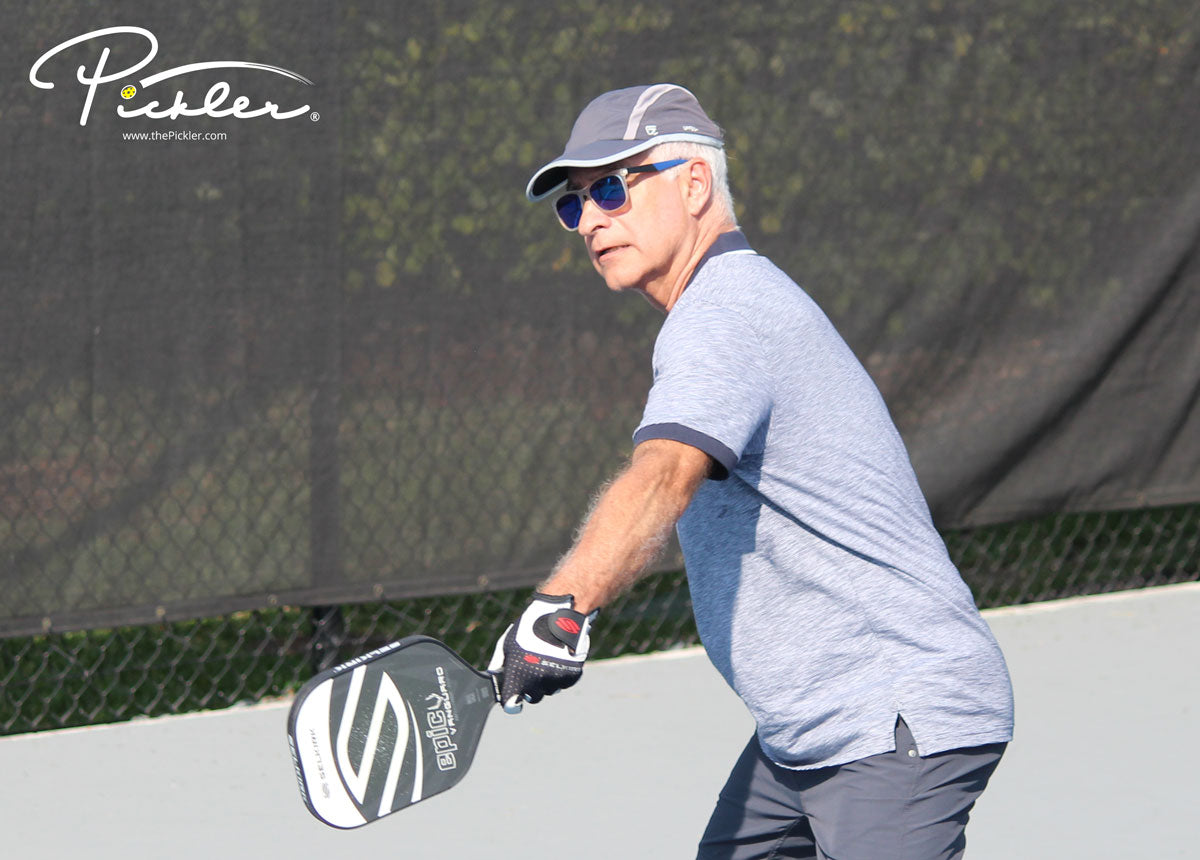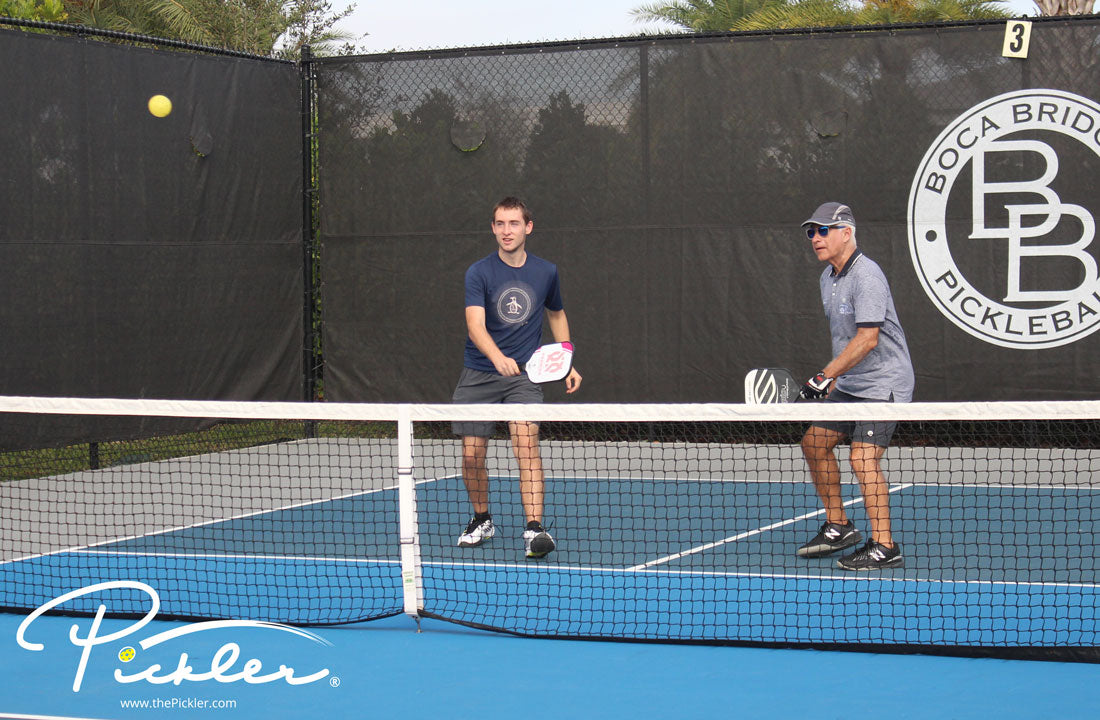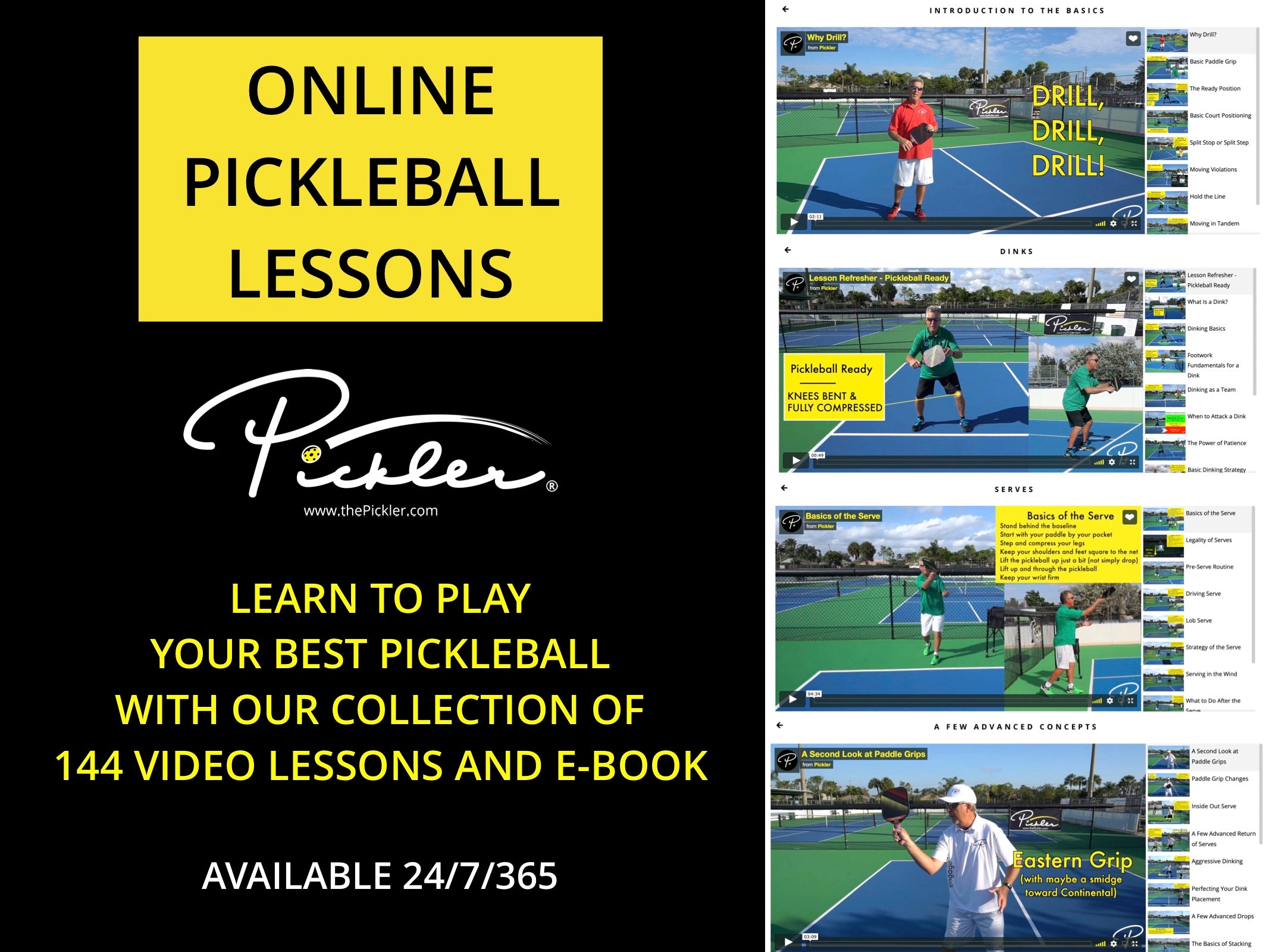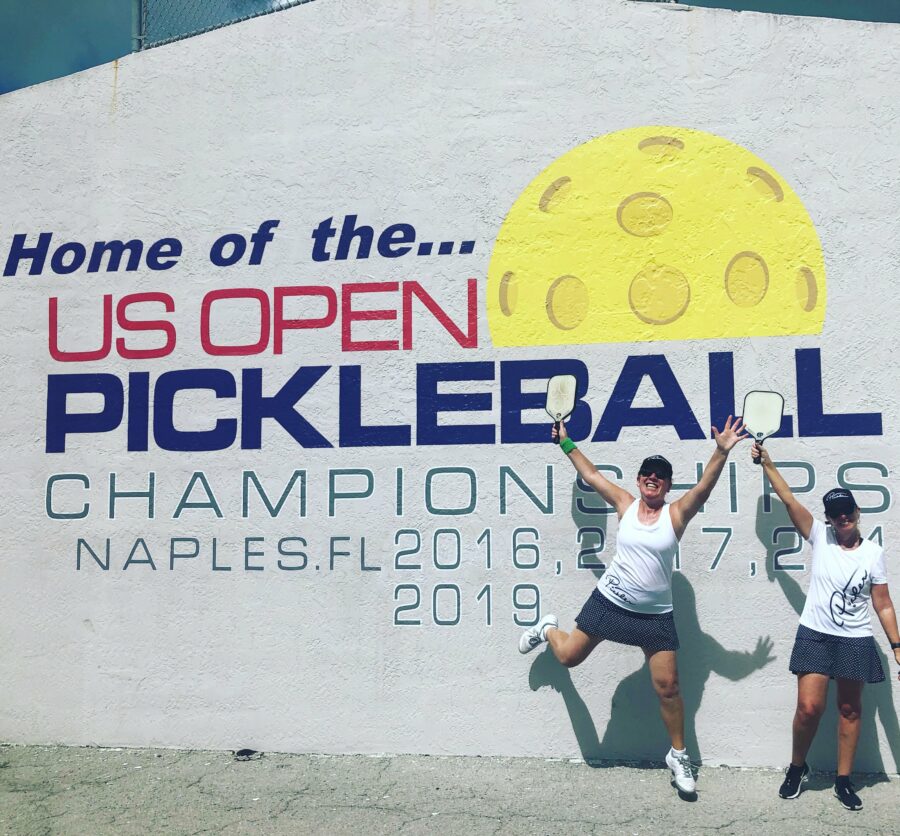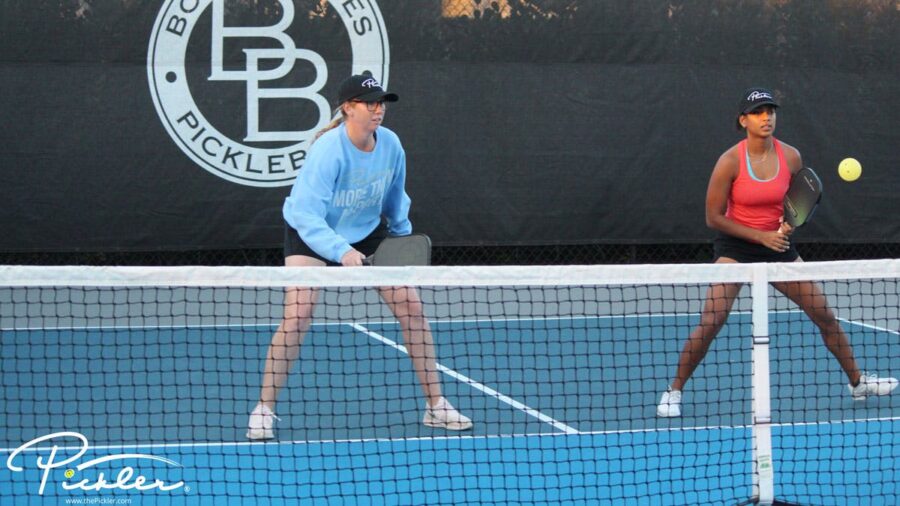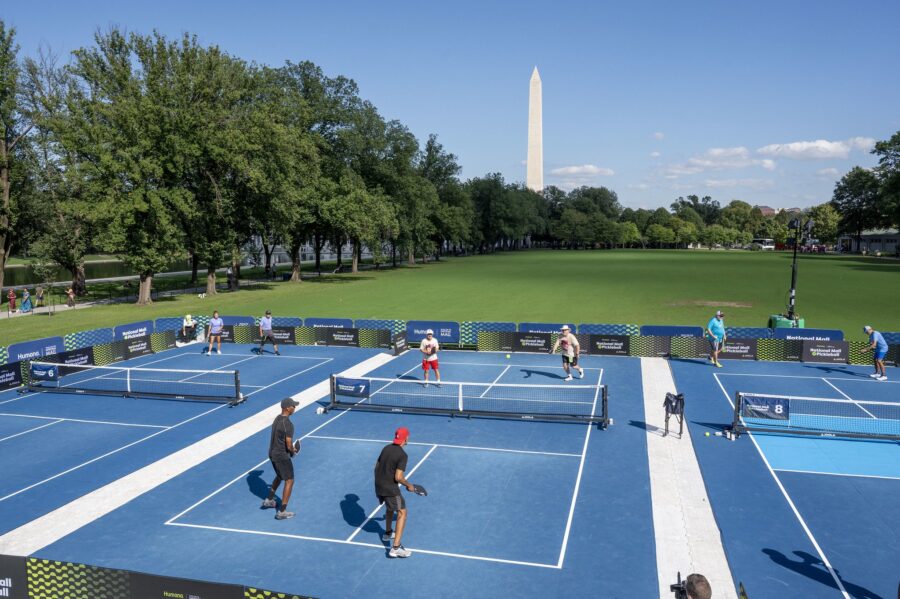In general, the backhand serve is not commonly used on the pickleball court, and most pickleball players opt for the more traditional forehand serve. However, there may be some situations where a backhand serve could be advantageous, which include, among other considerations:
- Surprise Factor: Since the backhand serve is less commonly used, it can catch opponents off guard and disrupt their return of serve preparation. If you have a particularly effective or deceptive backhand serve, it could give you an element of surprise and potentially lead to a weaker return from your opponents.
- Variety and Strategy: Incorporating a backhand serve into your pickleball serving repertoire adds variety to your strategy. By mixing up your serves with different spins, speeds, and angles, you can keep your opponents guessing and prevent them from settling into a rhythm. In particular, a backhand serve in pickleball will put different spin on the pickleball, which can help keep your opponents off guard.
- Crosscourt Angle: The backhand serve can allow you to generate a crosscourt angle that may be difficult for your opponent to handle. For instance, assuming you are right-handed, if you serve from the even side of the pickleball court with a backhand motion, you can create an angled trajectory that takes the pickleball off near the sideline of the court. This is particularly effective if your opponents are stacking or switching sides as the receiving team.
- Yips: The backhand serve requires a natural motion from your shoulder. Sometimes, this different motion can help a pickleball player that has encountered the “serving yips.”
However, despite these advantages, it is important to consider some potential drawbacks of the backhand serve on the pickleball court:
- Reduced Power and Control: The backhand serve may have less power and control compared to a traditional forehand serve, as most pickleball players have more power on their forehand side, rather than their backhand side. Further, since the backhand serve is less common on the pickleball court, it is also a less-practiced technique—leading to less power. Serving with less power may make it easier for your opponents to attack or put you on the defensive early in the point on the pickleball court.
- Technique Challenges: The backhand serve can be more technically challenging, as it requires a different swing motion and body positioning compared to the more common forehand serve. Plus, the toss of the pickleball on the volley serve can be more challenging, as your arms are crossed to execute the backhand serve. As a result, it may take time and practice to develop a consistent and effective backhand serve on the pickleball court. With that said, some of these technique challenges with the backhand serve can be overcome by using a drop serve (as opposed to a volley serve).
Ultimately, the decision to use a backhand serve in pickleball depends on your individual skills, comfort level, and the specific game situation. However, there is a benefit of constantly adding shots and variety to your pickleball game on the court and always remaining unpredictable—which the backhand serve can help you accomplish. If you feel confident and capable of executing a backhand serve effectively, and you believe it can offer a strategic advantage, it may be worth experimenting with in practice or casual play.
WANT MORE PICKLEBALL TIPS AND STRATEGIES?
Want to learn how to hit the perfect lob on the pickleball court?
Plus, if you want more pickleball tips and strategies on every aspect of your pickleball game, check out Pickler’s online video lesson collection called My Pro Pickleball Coach. My Pro Pickleball Coach is a fraction of the price of one clinic or even one lesson, and features over 140 video lessons (over 7 hours of instruction!), as well as a corresponding e-book. These online video lessons are available on demand 24/7 and breakdown every aspect of the sport of pickleball, including pickleball drills, strategy, and advanced concepts, so you will play your best pickleball.

